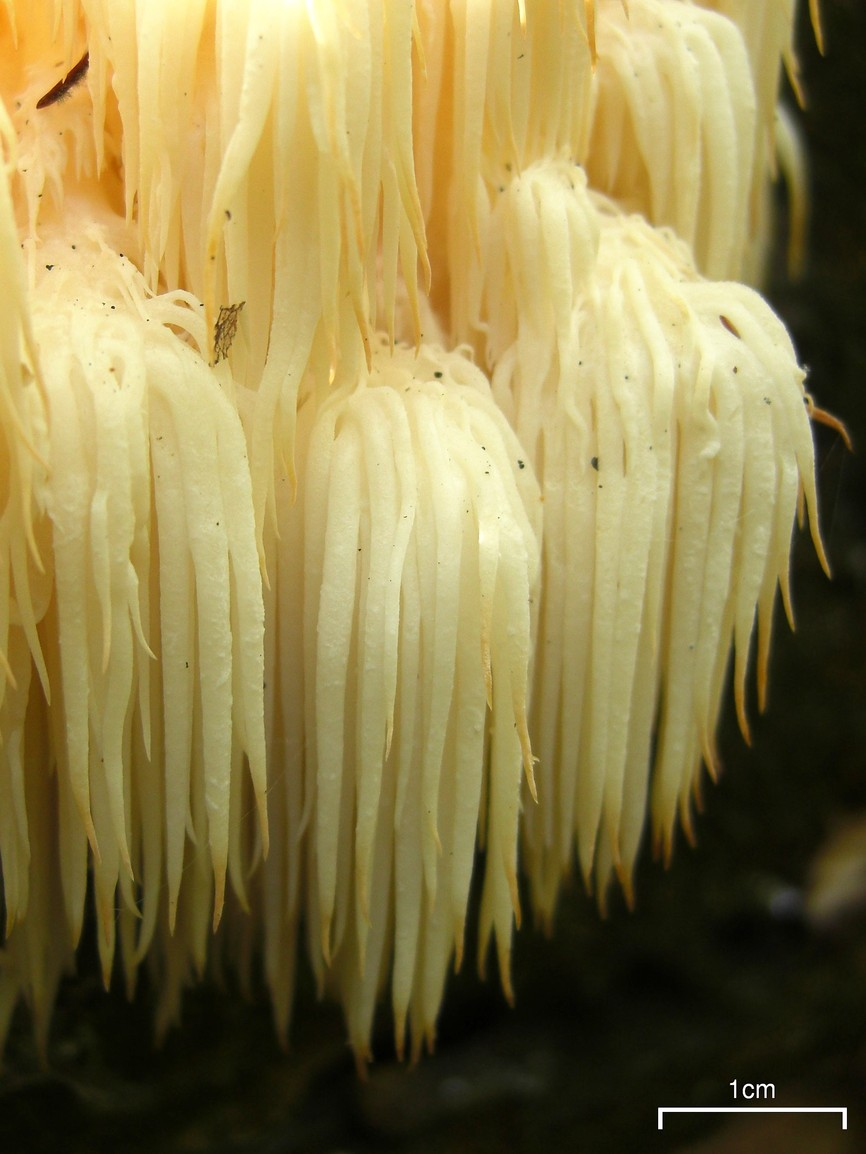9 Transformative Benefits of Lion's Mane Powder


|
|

It tastes like seafood and is rich in bioactive ingredients like phenols, volatile compounds, glycoproteins, sterols and polysaccharides. These compounds influence many body parts, particularly the heart, intestines and brain.
We have summarised nine health benefits of lion's mane that promise to transform the body and mind. Let's delve into the details.
Depression and anxiety are widespread, and according to the Mental Health Foundation, mixed anxiety and depression are the most common mental disorders in Britain, with 7.8% of people meeting the diagnostic criteria. Chronic inflammation is among the significant causes.
The anti-inflammatory properties of the lion's mane mushroom extract come to the rescue, and various animal studies have confirmed this effect. For example;
The nervous system includes the brain, spinal cord, and the nerves that emerge from both. This system spreads throughout the body to control the functioning of all body parts. The injuries to central regions of the nervous system, i.e., the brain and spinal cord, have severe repercussions and cause issues like loss of mental functions and memories, paralysis and coma in severe cases.
Several ingredients, particularly Hericenone B in the lion's mane mushroom, have neuro-regenerative properties and speed up recovery from these illnesses by causing the growth and repair of the neurons., the cells that make up the nervous system.
The benefits for humans are expected due to promising results of animal studies, and there are currently no human studies to this effect.
Various risk factors for heart disease are hypercholesterolemia, obesity, chronic stress and increased levels of clotting factors in the blood. A study at Tohoku University, Japan, noted the anti-platelet properties of Lion's mane and, thus, the potential to lower the risk of heart diseases by reducing the risk of blood clotting.
Studies involving mice and fats have noted that feeding lion's mane extract boosts fat metabolism and lowers the levels of triglycerides. For example, a study by Professor Kazuyuki Hiwatashi and colleagues at Tohoku University, Japan, involving mice, found that a 28-day intervention significantly decreased weight gain and triglyceride levels. Likewise, Lion's mane extract reduces the oxidation of cholesterol in the blood. It is beneficial given that the oxidised cholesterol sticks to the wall of blood vessels, causing an increased risk of stroke and heart attack.
Despite these potential benefits, more human studies are needed to explore its benefits for heart health.
With ageing, brain cells experience a decline in functions due to the inability of the cells to grow more and develop new connections. The worsening of mental functions results in dementia, a chronic loss of memory. The lion's mane mushroom has two essential compounds, erinacines and hericenones, that have neuro-regenerative and neuro-protective properties and stimulate the growth and regeneration of the brain cells.
Most current research is on test tubes and animal models, and more human studies are needed to be more confident.

Ulcers are painful and non-healing wounds that develop anywhere in the digestive system, including the stomach and intestines. The damage to the inner lining of digestive organs due to long-term use of medications like NSAIDs and the development and growth of H. pylori are the significant factors responsible for Ulcers.
Lion's mane extract tackles both of these issues. It prevents damage to the inner lining and controls the proliferation of H. pylori.
Most of these studies used herbal mixtures containing a variety of mushrooms, and it isn't easy to credit the lion's mane mushroom for these effects. More human studies are necessary for this effect.
Immunity protects the body from infections caused by bacteria, viruses and other infectious agents. A weak immune system paves the way for infections. The research using animal models shows that lion's mane improves the efficacy of intestinal immunity, protecting the body from the germs that reach the body through the mouth.
Professor Chen Diling (Guangdong Institute of Microbiology, China) attributed this phenomenon to improved gut microbiome balance that boosts immune health and found that enhanced immunity helps improve the symptoms associated with digestive illnesses, e.g., IBD.
The ability to boost immunity is highly promising, and the research on this topic is ongoing.
Oxidative stress due to free radicals and chronic inflammation is the cause of many illnesses in the body, including autoimmune diseases and heart diseases. The antioxidant and anti-inflammatory properties of the lion's mane come to the rescue and reduce the damage from these illnesses.
More in-depth human studies are needed to explore the antioxidative properties of lion's mane in clinical settings.

Diabetes is a condition in which the body fails to properly manage glucose levels, resulting in unhealthy glucose levels in the blood. Chronic diabetes results in damage to the kidneys, vision loss and damage to the nerves in the hands and feet. Lion's mane mushroom helps manage diabetes and lowers the intensity of complications associated with diabetes.
More research is needed to explore the therapeutic potential of the lion's mane for diabetes management.
Cancer occurs when the body loses the ability to control the division of cells, resulting in an uncontrollable division of cells. Damage to the cellular DNA due to radiation and free radicals are the leading causes. Several compounds in the lion's mane mushroom extract have anticancer properties that strengthen the body's ability to fight infections.
The anticancer properties of Lion's mane extract are a topic of ongoing research in oncology.
The bioactive ingredients of Lion's mane are promising to improve mood and cognitive functions. The results in animal models are promising. However, research on long-term supplementation in cognitively impaired people is ongoing.
Daily use is advised to reap maximum benefits; the studies have reported benefits only from long-term use. Sarah Docherty and colleagues (Northumbria University, Newcastle upon Tyne, UK) observed improved performance and lower stress levels in the people given 1.8g Lion’s mane powder for 28 consecutive days.
Research by Professor Pit Shan Chong and colleagues at The University of Hong Kong noted that the bioactive ingredients of Lion's mane influence the brain and cause an increase in serotonin and dopamine levels, the so-called happiness hormones.
The direct effects on the kidneys are minimal. In a study involving rats, the lion's mane helped regulate blood glucose levels, thus providing indirect protection to the kidneys, liver and pancreas.
The lion's mane is generally safe and well-tolerated. Very few users become allergic to it and experience signs, e.g., skin rashes and gastrointestinal discomfort. In case of these signs, the use must be stopped unless discussed with the doctor.
Many companies are preparing and marketing lion's mane mushroom supplements. The best options in the UK are Mushroom Wisdom Super Lion's Mane Tablets, New Roots Herbal Lion's Mane Capsules and Aloha Medicinals Lion's Mane Capsules. Visit the Welzo Store to buy.
The lion's mane mushroom has natural anticoagulants that slow down the process of blood clotting. Therefore, using it in combination with blood thinners like Plavix, aspirin, and warfarin or supplements and herbs that influence blood clotting causes an increased risk of bleeding.
Due to anticoagulants, pregnant women and people using blood thinners need to avoid lion's mane mushrooms.
According to the experts, using it as tea is the best way because hot water helps extract maximum nutrients from it. The other medicinal mushrooms, e.g. turkey tail and cordyceps, are also used effectively as tea.
The daily dosage depends on the purpose. Taking 800-900 mg daily is enough for most people to reap all the benefits. For people using it for chronic neurological diseases, e.g., Parkinson's disease or Alzheimer's, a daily dose of at least 3000 mg is advised.
Purchase and use of Lion's mane is protected under Schedule 8 of the Wildlife and Countryside Act 1981. It means that its collection in the wild is illegal.

The lion's mane mushroom has many medicinal properties and health benefits. Human studies are limited. However, studies in animal models show that it repairs nerve damage, reduces the symptoms of stress and anxiety and has protective effects against dementia.
It has a wealth of immune boosting, anti-inflammatory and antioxidant properties and helps reduce the risk of diabetes, ulcers, cancers and heart diseases. The results of animal studies are promising, yet more precise human studies are necessary to develop more applications.
Many Lion's mane-based supplements are available at Welzo. Visit us to buy Lion's Mane (Hericium) Capsules, Lion's Mane Capsules by New Roots Herbal, Lion's Mane Capsules by Vegcaps Host Defense, Super Lion's Mane Tablets and the Resilience Mushroom Blend Capsules.
We have Flow Adaptogenic Coffee with Lion's Mane and Rhodiola Sachets for tea lovers.








Plus get the inside scoop on our latest content and updates in our monthly newsletter.